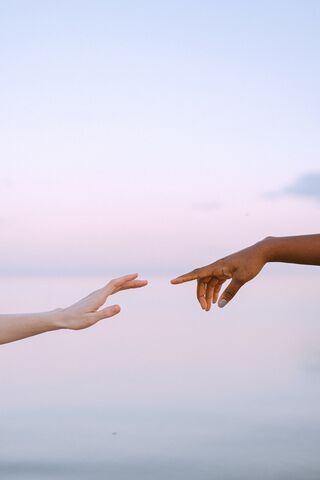Empathy
Why Can’t We All Just Get Along?
Science indicates that we should be pessimistic about achieving unity.
Posted February 2, 2021
The Biden administration has promised to heal the deep divides that exist in modern America, moving us toward national unity. But is this a realistic goal? Probably not: A wide array of research findings have shown that attempts to achieve intergroup harmony often fail, and achieving unity can yield insidious side effects.

Hundreds of studies have indicated that our modern partisanship is built upon an early-emerging urge to divide our social world into “ingroups” and “outgroups.” Regardless of whether these groups are meaningful or arbitrary, we favor people in our ingroups along most conceivable dimensions. Being tribal is deeply ingrained in human nature.
Once we are entrenched within a particular group, our minds become so fundamentally shaped by our partisanship that it can become truly impossible to understand how people in other groups can think and feel as they do. These “empathy gaps” often lead us to conclusions that outgroup members must be stupid or evil. By not being able to empathize with how another person feels when they think about protestors or police, for instance, it seems to us that they must be severely lacking.
Furthermore, it’s not clear that interventions to increase our empathy toward outgroup members are the silver bullet that we might hope for. Empathy is limited in its scope, and is thus difficult to extend to large numbers of people (especially when these people are different from us in myriad ways). In addition, attempts to foster empathy across group divides can sometimes backfire. Putting people from different groups into contact with one another can foster an appreciation of how the world is seen from others’ shoes—but without respect for divergent perspectives, this increased appreciation can sometimes inflame hostility. If we don’t like how another person thinks, understanding their reasoning might just make us angrier.
In rare instances, however, our empathic failures can be overcome and intergroup harmony can be realized. People sometimes successfully cultivate empathic concern toward outgroup members, discover underlying commonalities in the face of superficial differences, and agree to disagree. There is hope, therefore, in achieving some degree of unity where division once predominated. But even this may not be quite what we’re hoping to attain.
Perhaps surprisingly, there are dark sides to reconciling group differences. When rival factions achieve mutual peace, this can lead low-power groups to become more complacent with the status quo, while simultaneously doing nothing to motivate high-power groups to rectify social inequalities. Thus, unity can ironically perpetuate inequality. Establishing a form of peace that works in everybody’s favor is exceedingly difficult.
So, we shouldn’t get our hopes too high for the prospect of realizing promises for a harmonious and just America, let alone a harmonious and just world. But even if a utopian unity is unlikely to be realizable, that doesn’t mean it’s not worth pursuing. If we can move a bit closer to a more bipartisan and amicable society, perhaps by fostering more humility about the superiority of our own moral compasses, certainly that will still constitute true progress.


